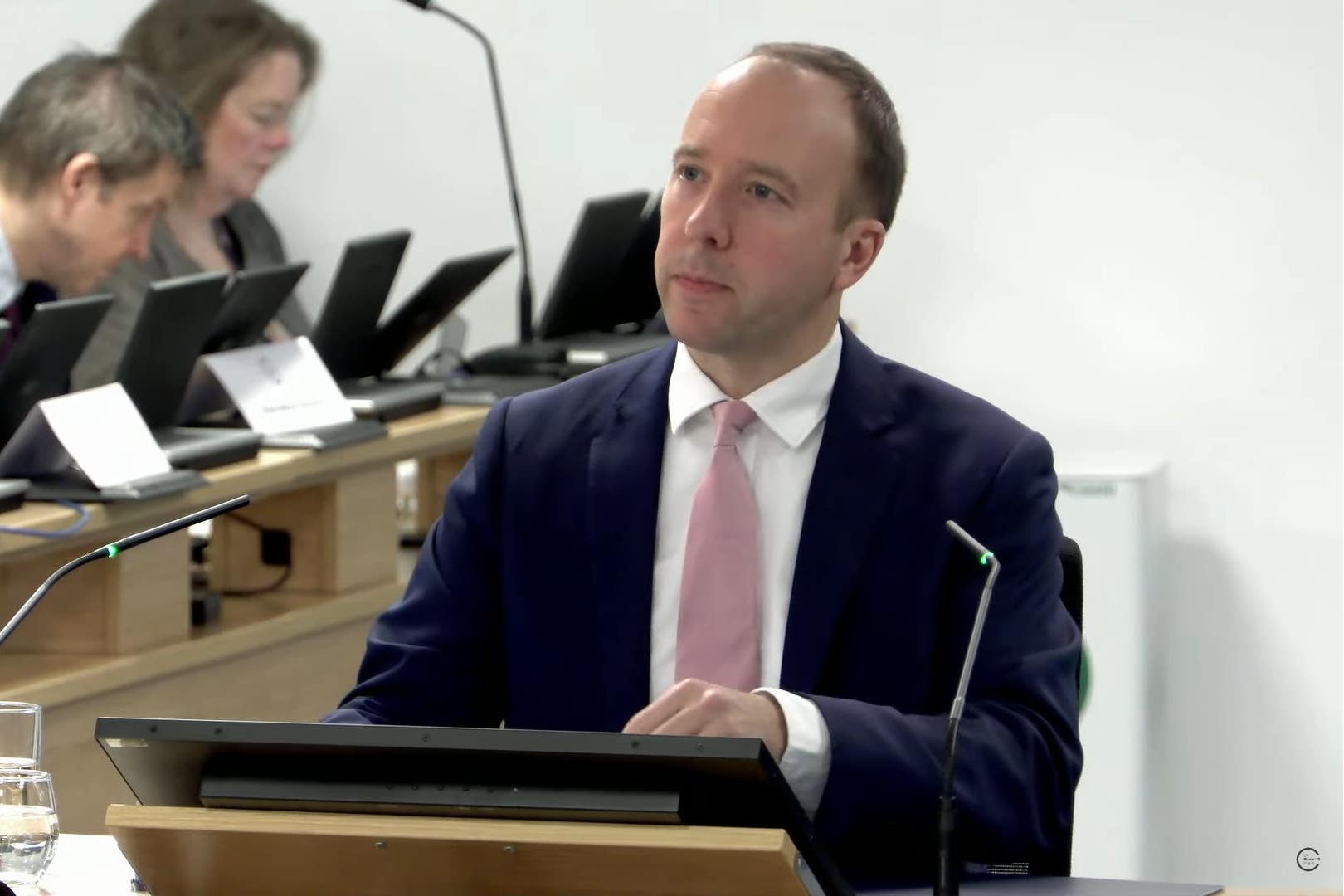The Covid inquiry has descended into a tabloid TV game show
Matt Hancock being forced to deny that he is a liar was the star turn in an undignified circus that appears increasingly unlikely to teach us any useful lessons, writes John Rentoul


A public inquiry chaired by a judge is supposed to be the British state at its most serious, considered, and self-critical. And what have we learned so far from Baroness Hallett’s inquiry into the government’s handling of Covid?
One of the country’s most senior civil servants tells me that we have learned three simple things: “Cummings is psychotic, Boris is chaotic, and Matt Hancock is a narcissist.”
It is an unedifying show, and the focus on people being rude about each other on WhatsApp seems to be a distraction from the inquiry’s core purpose, which is to learn lessons for future public health crises.
It could be argued that it is relevant to that purpose to know that our leaders were behaving like a sackful of weasels. Although it must be always the case that ministers, their advisers and civil servants will have fractious episodes, their relationships were worse than usual in 2020 and 2021.
Matt Hancock, the health secretary during the pandemic, has been called a liar. Not just by Dominic Cummings, the former prime minister’s “psychotic” former chief adviser, but by Lord Sedwill, who was the cabinet secretary at the time, in a WhatsApp message to Simon Case, his successor.
Sedwill said he didn’t really mean it: it was a joke, he said, an example of “gallows humour”. But he did think that Hancock was, as he said in another message, “over-promising, over-confident, over-assured”.
He was backed up by Helen MacNamara, his deputy, who told the inquiry that a “pattern” developed in the early days of the pandemic in which Hancock would tell officials “something was absolutely fine” only for them to later discover that “it was very, very far from fine”.
How useful is this, though, nearly four years after the events described? Overconfidence is an abiding fault of politicians, and it is hard to legislate against. Hancock’s personality was a strength in some ways. His Tiggerish energy meant that he worked exceptionally hard, and persevered against attempts by Cummings to destabilise him.
Later, however, his attitude to criticism seemed less well-judged, as he adopted a “water off my back and I don’t care” pose, almost embracing humiliation in reality TV. But he seems to have confused humility with humiliation. Can you imagine Margaret Thatcher, or David Cameron, or indeed almost any other cabinet minister apart from Nadine Dorries, on a TV reality show?
Except the Covid inquiry seems to have turned itself into something very like a TV reality show, and Boris Johnson and Rishi Sunak are about to enter that jungle shortly.
And how useful is that going to be? How many more of these WhatsApp messages are there, in which cabinet ministers, their advisers and senior civil servants compete to use the most childish language about each other? How many more casual accusations of lying and “killing people” will be thrown around?
Most of this is unhelpful, I think. It is obvious, as my senior civil service source suggests, that Johnson ran an unusually chaotic administration. Even allowing for the novelty of WhatsApp preserving the kinds of casual conversations that would in the past have been oral, leaving no trace on the historical record, relations in the Johnson government were more dysfunctional than average.
The fault lies with Johnson himself, and with Cummings, hired by Johnson in the full knowledge of what kind of person he was. Faced with a choice of taking sides between Hancock and Cummings, who edited his blog to make it look as if he had an idea that coronavirus was coming, the inquiry can only conclude that it would have been better if a different prime minister had been in charge of selecting personnel.
But that is hardly a useful finding for Lady Hallett: “Do not elect a personality as disorganised as Johnson as prime minister in future.”
None of this would be much use if there should be a next time. The inquiry is supposed to be asking the questions that matter: how did Britain do, and how could we have done better? Instead, it is dangerously close to the entertainment zone.






Join our commenting forum
Join thought-provoking conversations, follow other Independent readers and see their replies
Comments